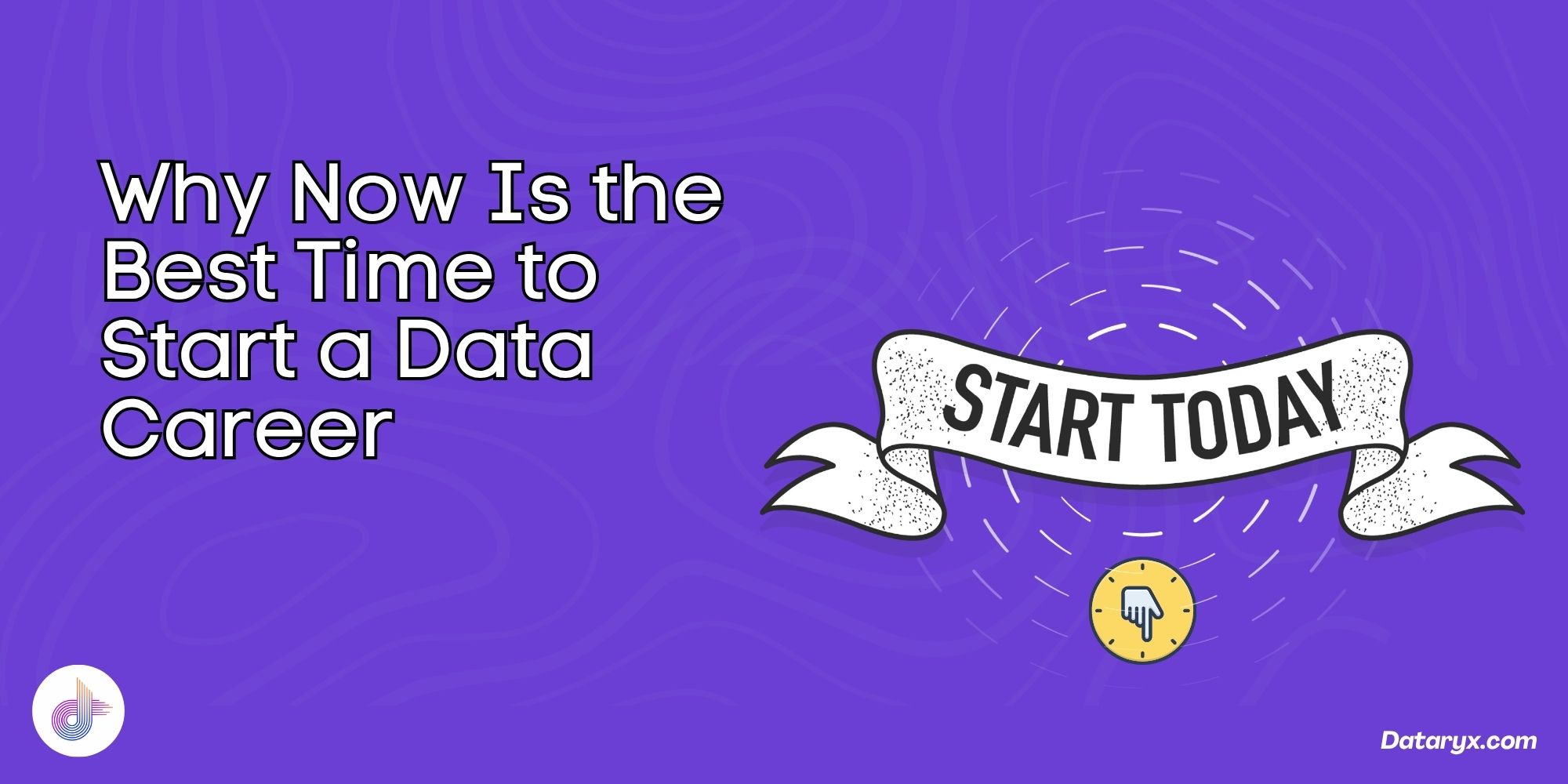Why Now Is the Best Time to Start a Data Career (Even If You're Not Technical).

You’ve probably heard that ‘data is the new oil’, but what does that mean for you, especially if you don’t come from a tech background? You must be thinking that I come from a non-tech background; it is next to impossible for me to make a cut in a data career.
I don’t blame you; I was a physics postgraduate and was teaching physics to engineering students. I used to think the same way. Here is reality: I did not just only try an unconventional path but made a successful career out of that. Let me tell you one truth: you don’t need to be a coder or mathematician to break into data. And now is the best time to start, regardless of what your background is. Why? Since it is the time when most of the companies have understood they need to be ahead in the data game if they want to leave the competition behind. Not only that, they are looking for people with relevant business experience and field knowledge. Here is your chance to shine. When you already have relevant background knowledge (healthcare, marketing, retail, logistics, etc.), you just need to start learning data tools, and voila, you've made yourself a brand-new data career and a higher paycheck. Following are a few more compelling reasons to start your data career today.
The Demand for Data Talent Has Never Been Higher
The data industry has been experiencing exponential growth and is expected to increase at the same pace in the future. “Employment of data scientists is projected to grow 35% from 2022 to 2032,” compared to just 2.8% average across all occupations (sun.com). That’s over 12× the rate of job growth in other fields. Another compelling example: “The U.S. Bureau of Labor Statistics anticipates a 25% growth in operations research analysts (which includes data analysts) from 2020 to 2030 (nobledesktop.com). This trend has been possible and will be ongoing, as companies in all sectors are hiring data analysts healthcare, marketing, teaching, retail, and logistics . To your surprise, even better, remote and freelance data roles are on the rise. “Data roles aren’t just for tech companies anymore; they’re everywhere.”
AI and Automation Are Creating More, Not Fewer, Analyst Opportunities
Unlike many other IT roles, in the data industry, we can expect the ongoing upward trend to surpass the hurdle of artificial intelligence (AI). AI generates more and more data, which needs human interpretation. AI systems, like chatbots, recommendation engines, or even self-driving cars, don’t just use data; they create new data every second. Let’s say a company uses AI to handle customer queries. AI chats with 50,000 people this month. That creates tons of logs: topics, sentiment, response time, and resolution success. Now what? A data analyst steps in to:
- Identify common customer pain points
- Spot patterns in complaints
- Recommend improvements to the AI or workflows
Example: AI chatbots creates output, but analysts evaluate performance, trends, usage. Businesses need people who understand data, not just code it. “AI still needs humans to ask the right questions.”
You Don’t Need to Be Technical Anymore (Thanks to Low-Code & No-Code Tools)
You really don’t need to be tech-literate to be a data professional. There are new tools coming in the IT industry that can be used to do analysis. If you have the right background and niche knowledge, you can ask the right questions and find the answer to the problem. Most of the tools used for data visualization are just drag and drop and have comprehensible UI, for example, Tableau and Power BI. Besides that, SQL and Python can be learned without a computer science degree. If you can use Excel formulas, you can start learning SQL or dashboards.
I have created SQL and Python courses for beginner to advanced with a focus on a data analyst role; you can find them on the homepage.
Your Existing Skills Are More Transferable Than You Think
You are more capable of a data career than you think. You have knowledge that more computer science graduates lack. That is your field knowledge. Your transferable skills make you unique and the right fit for the role. For example
- Teachers → strong in data organization and reporting
- Admins → attention to detail, process thinking
- Marketers → understand customer data, campaign performance
More than any other skill, you have soft skills like communication, problem-solving, and curiosity. These skills, along with new skills, not only help you become a data professional but also excel in the career. Data roles need people who think critically, ask the right questions, and tell stories clearly, not just code quickly.
There’s Never Been More Free (and Beginner-Friendly) Learning Resources
Skills needed to become a data professional can be learned for free. You can learn everything related to this career online. There are plenty of free, accessible resources that you can use to learn on the go while waiting for the bus, during lunch, or during a 30-minute study session before you sleep. Little steps in the right direction add up very quickly and lead you toward a successful data career.
Data Careers Are Flexible, Future-Proof, and High-Paying
A data career is not only highly sought after but also very rewarding. It opens the door to remote work, more flexibility, and salary hikes. It comes with endless niche paths: analytics, BI, data engineering, and data storytelling. You can choose what suits you better with your existing skills and new skills you are learning. The skillset that you will create will evolve with you not something you outgrow. You don’t need to be technical.
You just need to start. Take your first step today, your future career might be only one SQL query away. Check out beginner-friendly tutorials on dataryx.com.